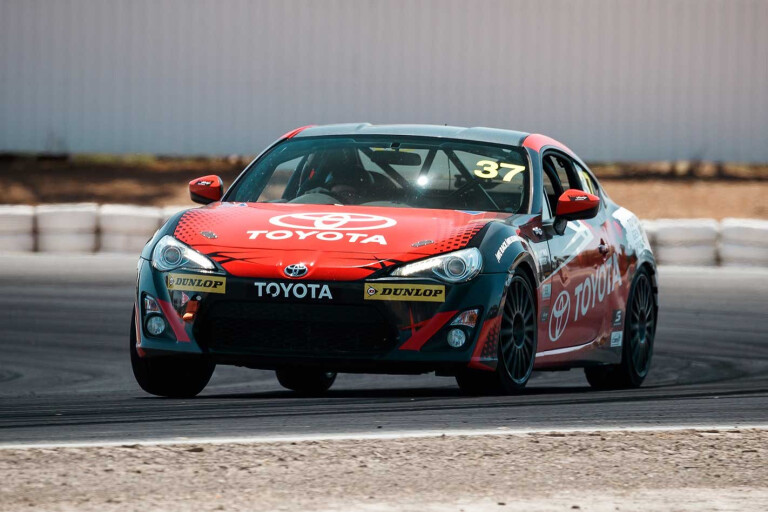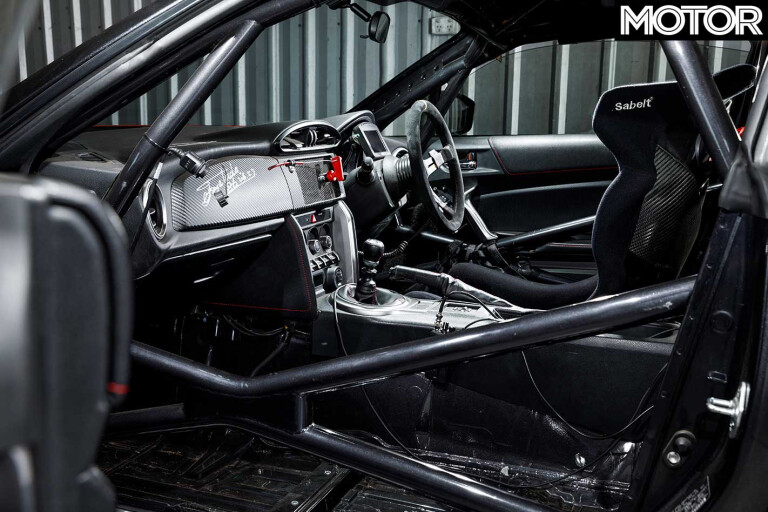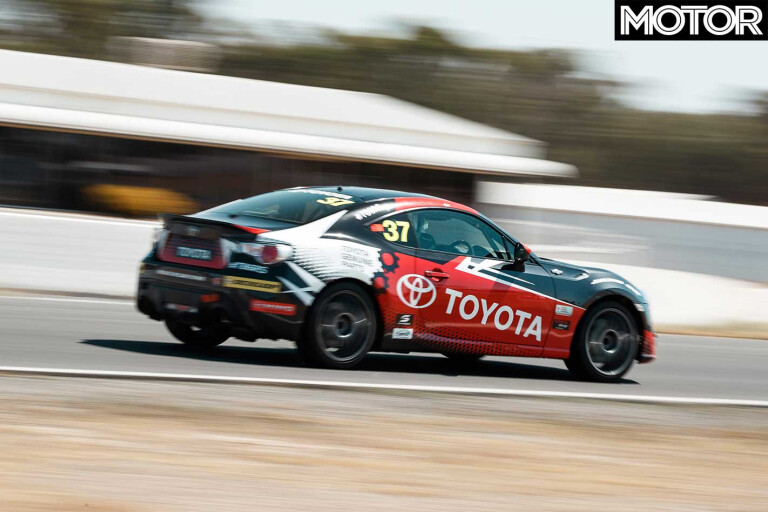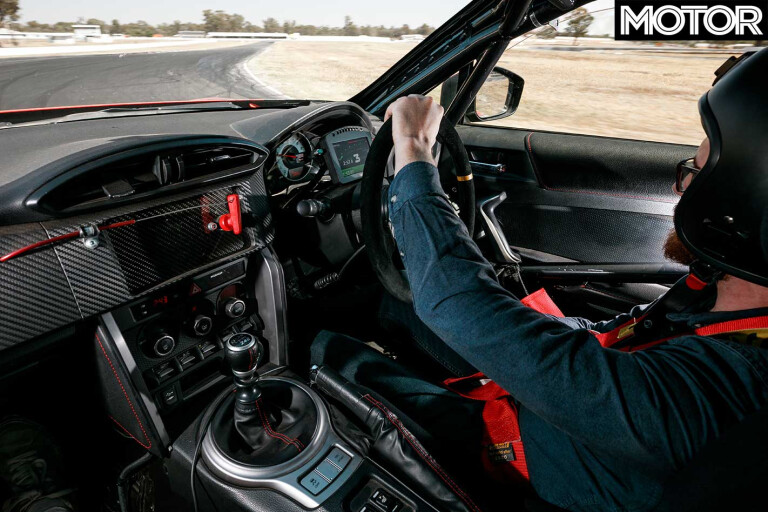
Getting out of a drift-ready 86 and into the Toyota 86 Racing Series car must be what it feels like for a fighter pilot to get into their road car after a long day in the skies.
That’s not to say this is an unexciting car. Having drunk in the race livery of this otherwise stock-looking ’first-gen’ 86, the heart rate increases as you poke your head through the driver’s window to find an interior so black, light almost can’t escape it, a matrix of proper, full roll cage (no ditzy bolt-in half-cage here), race seat, race steering wheel, stereo replaced with a crudely installed kill switch and a MoTeC dash. This, ladies and gentlemen, is an office. And personally I’m simple enough to have low standards when it comes to work space.

But first, a refresher on what the Toyota 86 Racing Series is exactly. Kicking off in 2016 and now in its fourth season in Australia, the series supports Supercars at tracks all around the country. Last year there were six races with fields of up to 40 cars, the idea being keep the cars and racing cheap so as to offer a stepping stone for hotshot karting kids to move into cars, mixing with amateurs and seasoned pros alike. The 86 Racing Series website calls to action “find out how you can get involved!” And it's not entirely unrealistic to think you could.
Brand new, a car costs about $75K ready to race, the package including upgraded AP Racing brakes, MCA coilovers, exhaust and a MoTec ECU. There’s a TRD oil cooler and custom baffled oil sump pan; a full roll-cage must be fitted and a compliant race seat as well. Power increases to approximately 169kW, while the minimum weight including driver is 1285kg (a stock 86 GTS road car is 1258kg sans driver).
Feasibly, you can bring your own 86 to Neal Bates – the exclusive builder of Racing Series cars – and have a race package fitted for $25K (budgeting an extra $13K or so for the cage and seat) and people have, building cars using statutory written-off 86s for as cheaply as $43K.

Once you have the car, each round has a very agreeable $1500 entry fee (meaning there are, of course, still costs to run the car and transport it and yourself to the track) but there is a $150K prize pool on offer. If you dare bet on your skills, you could enjoy a season of very subsidised racing indeed.
Today, we are just enjoying a very subsided few laps of Winton Raceway. And what do we say? It drives like an 86 that’s louder (and sounds quite good, actually, like it has carburettors), the noise clear and unfiltered thanks to the lack of carpet and sound deadening.
There’s a lot more grip, too, meaning you can man-handle the 86 on the brakes and into corners, basically flattening the throttle mid-corner the moment you can start opening the steering.

In almost all areas it feels about 15 per cent better than a stocker, but also invites you to be a bit rough, pounding over kerbs and – as is common in the series, although we didn’t try – flat-shifting with cruel, mechanically unsympathetic abandon. (Rule-makers were forced to stipulate a lightened clutch and flywheel as with the heavier stock items, flat-shifters kept lunching gearboxes.)
It doesn’t feel a great deal faster than the stock car on sticky rubber, not unsurprisingly. At Winton in 2016, Cameron Hill took pole in the 86 Racing Series with a 1:37.9. Last year, Warren Luff, for MOTOR, set a 1:42.8 in a stock 86 GTS Performance Pack on Michelin Primacys.
Of course, most of the difference is down to the tyres. But that’s the idea of the 86 Racing Series: make all the cars the same, so that any time difference is down to what lies between the drivers’ ears.
FAST FACTS
2019 Toyota 86 Racing Series race car
BODY: 2-door, 2-seat coupe
DRIVE: rear-wheel
ENGINE: 1998cc boxer-4, DOHC, 16v
POWER: 169kW @ 7000rpm (approx)
TORQUE: 236Nm @ 6400-6800rpm (est)
WEIGHT: 1285kg (including driver)
POWER-TO-WEIGHT: 132kW/tonne
TRANSMISSION: 6-speed manual
SUSPENSION: coilover strut, anti-roll bar (f); A-arms, coilover strut, anti-roll bar (r)
STEERING: electrically assisted rack-and-pinion
BRAKES: 330mm ventilated discs, 4-piston calipers (f); 316mm ventilated discs, 2-piston calipers (r)
WHEELS: 18.0 x 8.0-inch (f/r)
TYRES: Dunlop Direzza DZIII86; 225/40 R18 (f/r)
PRICE: $45,000 (used, approx); $75,000 (new)

COMMENTS